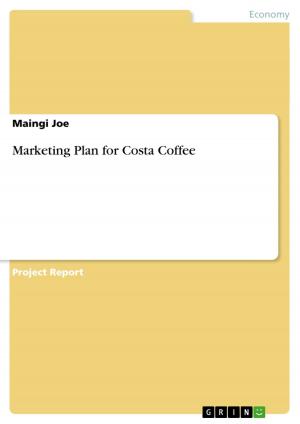Richard Florida's Concept of the Creative Class
Berlin's Strengths and Weaknesses to Attract Creative People
Nonfiction, Social & Cultural Studies, Political Science| Author: | Renard Teipelke | ISBN: | 9783640540969 |
| Publisher: | GRIN Publishing | Publication: | February 18, 2010 |
| Imprint: | GRIN Publishing | Language: | English |
| Author: | Renard Teipelke |
| ISBN: | 9783640540969 |
| Publisher: | GRIN Publishing |
| Publication: | February 18, 2010 |
| Imprint: | GRIN Publishing |
| Language: | English |
Seminar paper from the year 2009 in the subject Politics - Miscellaneous, grade: 1,0, University of California, San Diego (Department of Political Science), course: Urban Politics, language: English, abstract: A long and unsettled history, an international reputation for its cultural scenes, a debt of more than 61 billion euros, 3.4 million inhabitants and 400,000 trees - this is Berlin, the capital, biggest city, and political center of Germany. It is famous for its museums and theaters, its art galleries and restaurants, its diverse districts, nightclubs, and universities (Becker 48). These seem to be the perfect conditions for Richard Florida's Creative Class, a group of young professionals who are searching for a job and a life. In the following essay, I will show how this concept of the Creative Class helps to analyze Berlin's strengths and weaknesses to attract creative people. Furthermore, I will also point out where this concept lacks practical applicability. After introducing Florida's concept, several aspects will be discussed: the history and culture of Berlin, its environment and skyline, the life in the twelve districts, the role of educational institutions, the metropolitan region of Berlin/Brandenburg, state politics, and alternative scenes in the city.
Seminar paper from the year 2009 in the subject Politics - Miscellaneous, grade: 1,0, University of California, San Diego (Department of Political Science), course: Urban Politics, language: English, abstract: A long and unsettled history, an international reputation for its cultural scenes, a debt of more than 61 billion euros, 3.4 million inhabitants and 400,000 trees - this is Berlin, the capital, biggest city, and political center of Germany. It is famous for its museums and theaters, its art galleries and restaurants, its diverse districts, nightclubs, and universities (Becker 48). These seem to be the perfect conditions for Richard Florida's Creative Class, a group of young professionals who are searching for a job and a life. In the following essay, I will show how this concept of the Creative Class helps to analyze Berlin's strengths and weaknesses to attract creative people. Furthermore, I will also point out where this concept lacks practical applicability. After introducing Florida's concept, several aspects will be discussed: the history and culture of Berlin, its environment and skyline, the life in the twelve districts, the role of educational institutions, the metropolitan region of Berlin/Brandenburg, state politics, and alternative scenes in the city.















